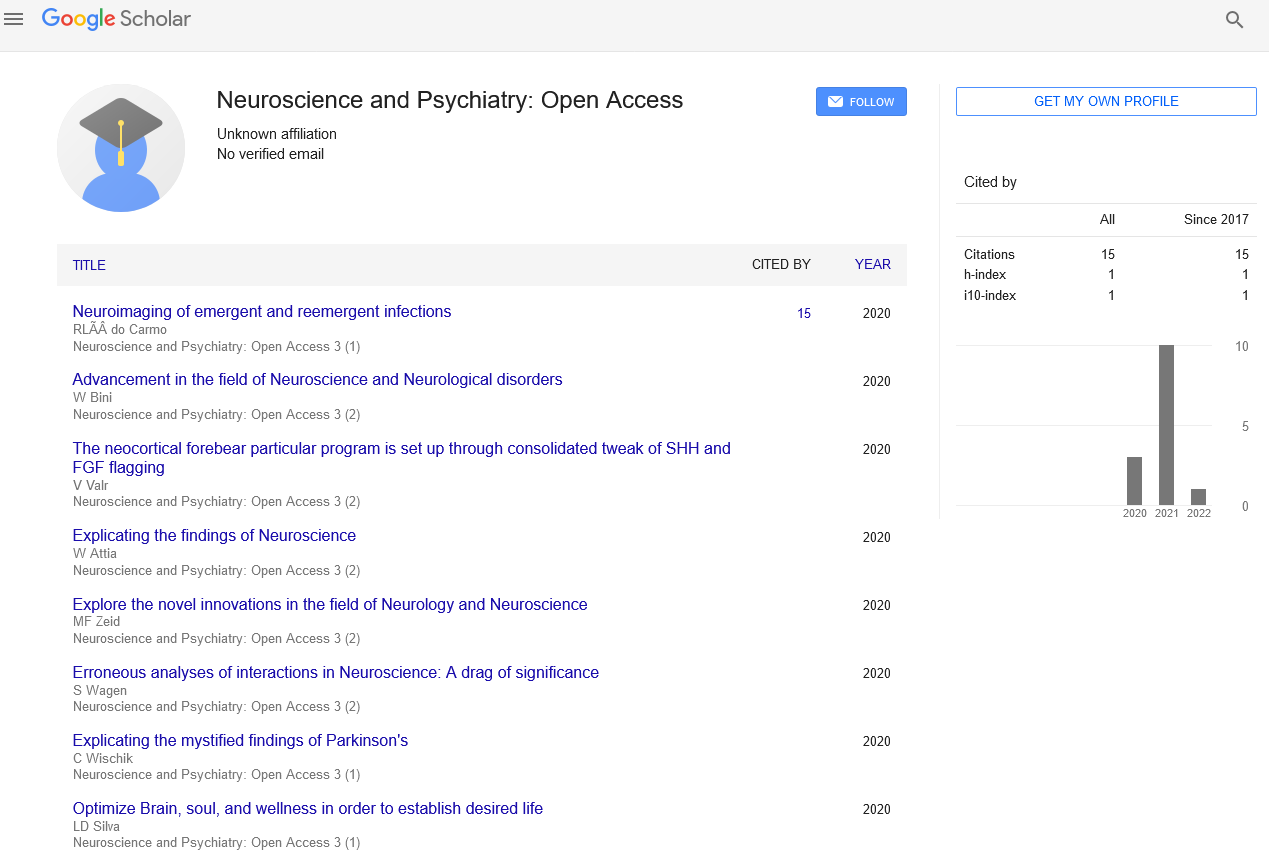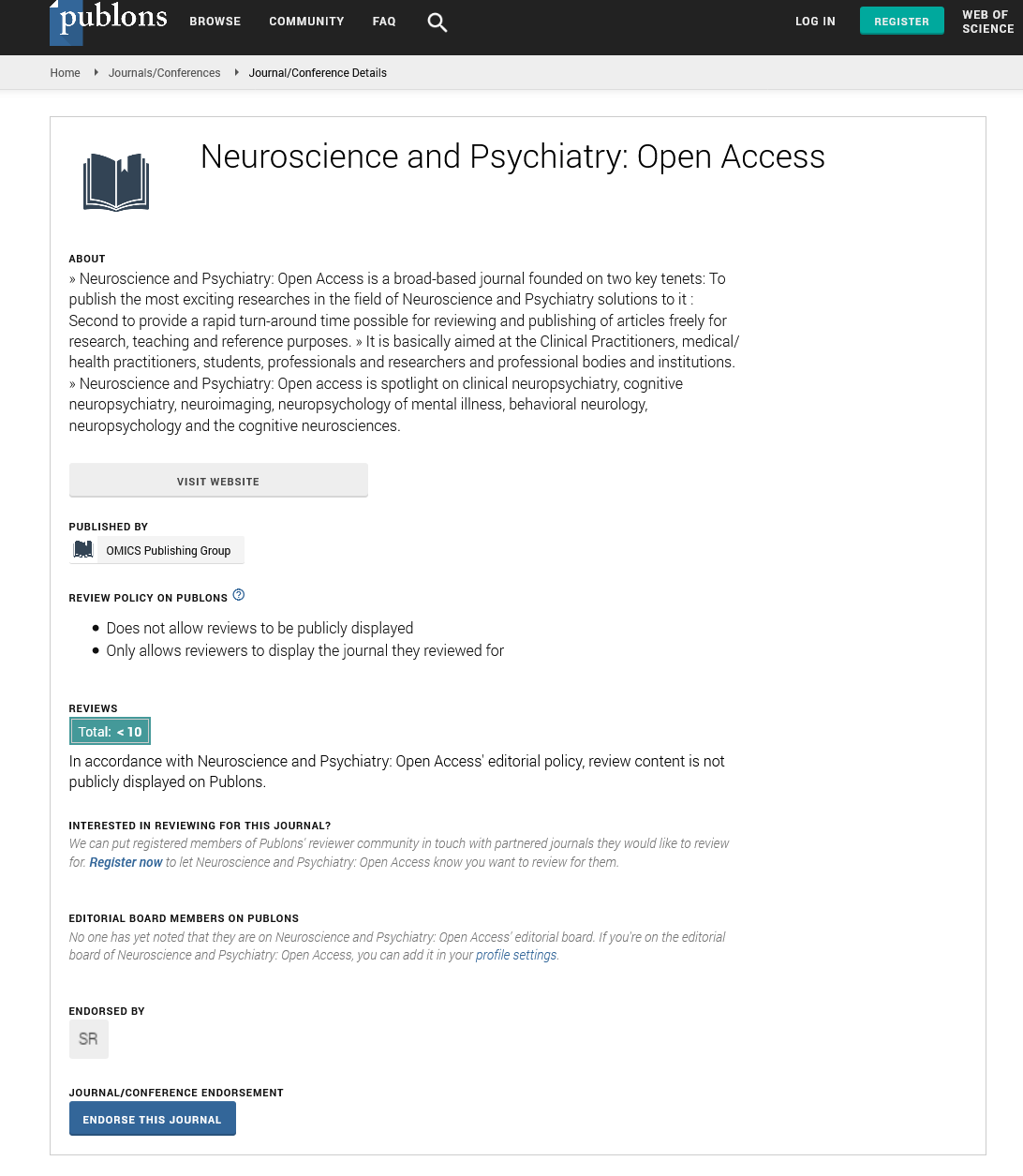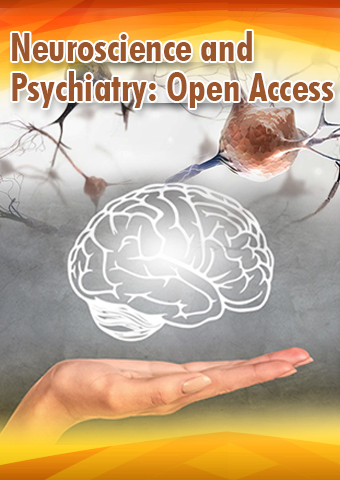Perspective - Neuroscience and Psychiatry: Open Access (2024) Volume 7, Issue 5
The Role of Psychotherapy in Treating Mood Disorders
- Corresponding Author:
- Adam Meddeb
Department of Psychiatry and Psychotherapy,
Karolinska Institute,
Stockholm,
Sweden
E-mail: adam.med@med.lu.se
Received: 20-09-2024, Manuscript No. NPOA-24-148654; Editor assigned: 23-09-2024, PreQC No. NPOA-24-148654 (PQ); Reviewed: 07-10-2024, QC No. NPOA-24- 148654; Revised: 17-10-2024, Manuscript No. NPOA-24-148654 (R); Published: 24-10-2024, DOI: 10.47532/npoa.2024.7(5).276-278
Introduction
Mood disorders, which include depression, bipolar disorder, and dysthymia, are characterized by persistent disturbances in mood that affect emotional, psychological, and social functioning. These disorders impact millions worldwide, causing significant distress and impairing day-to-day life. While medication plays an important role in treating mood disorders, psychotherapy has become a central therapeutic approach for addressing the underlying emotional, cognitive, and behavioral aspects of these conditions. Psychotherapy, often referred to as “talk therapy,” focuses on helping individuals identify and address patterns of thought and behavior that contribute to mood disorders, providing coping mechanisms and emotional support.
This article explores the role of psychotherapy in treating mood disorders, covering the different types of therapy, their effectiveness, and their integration with other treatment approaches.
Description
Understanding mood disorders
Mood disorders manifest in various forms and severity levels. Common types include:
• Major Depressive Disorder (MDD): Characterized by a persistent feeling of sadness, loss
of interest or pleasure, fatigue, changes in appetite, sleep disturbances, and feelings of
hopelessness or worthlessness.
• Bipolar disorder: Involves mood swings between periods of depression and manic episodes,
where individuals experience heightened energy, irritability, or euphoria.
• Dysthymia (persistent depressive disorder): A chronic form of depression with symptoms
that are less severe but last for two years or more.
• Cyclothymic disorder: A milder form of bipolar disorder, involving alternating periods of
depressive symptoms and hypomanic episodes over at least two years.
While medications, such as antidepressants and mood stabilizers, are used to manage the chemical imbalances in the brain associated with these disorders, psychotherapy addresses the psychological and behavioral contributors to mood disturbances.
Types of psychotherapy for mood disorders
There are several types of psychotherapy, each tailored to address different aspects of mood disorders. These therapies provide individuals with tools to manage their symptoms, improve coping mechanisms, and develop better emotional regulation.
Cognitive Behavioral Therapy (CBT)
CBT is one of the most widely used and empirically supported therapies for mood disorders, particularly depression and anxiety. The core principle of CBT is that mood disorders are largely influenced by maladaptive thought patterns. Negative and distorted thinking can perpetuate feelings of sadness, guilt, or worthlessness, and ultimately worsen mood disorders.
Research consistently shows that CBT is highly effective for treating depression and preventing relapse. It is often considered a first-line treatment, especially for mild to moderate cases of depression.
Interpersonal Therapy (IPT)
IPT focuses on improving interpersonal relationships and social functioning, which are often disrupted in individuals with mood disorders. IPT is particularly effective for treating major depressive disorder and emphasizes the connection between mood and current interpersonal issues, such as conflicts, role transitions, or social isolation.
Studies have shown that IPT can be particularly beneficial for individuals whose depression is closely linked to relationship issues or major life transitions. The therapy encourages individuals to develop better communication skills and build healthier, more supportive social networks.
Psychodynamic therapy
Psychodynamic therapy is rooted in the principles of psychoanalysis, which focuses on unconscious thought processes, past experiences, and emotional conflicts that may contribute to mood disorders. While it is a more long-term approach, it can be particularly helpful for individuals with chronic depression or those who have not responded well to other forms of treatment.
Though psychodynamic therapy is less structured than CBT, research has shown that it can lead to long-lasting improvements in mood and emotional functioning. This type of therapy may also be more effective for individuals with a deeper need to explore their emotional and psychological history.
Dialectical Behavior Therapy (DBT)
Initially developed for individuals with borderline personality disorder, DBT has proven effective in treating mood disorders, particularly in individuals with intense emotional swings and difficulty managing emotions. DBT combines aspects of CBT with mindfulness practices and focuses on regulating emotions, tolerating distress, and improving relationships.
Research has shown that DBT can be particularly beneficial for individuals with co-occurring mood disorders and personality disorders or those who engage in self-harming behaviors.
Family therapy
Family dynamics often play a crucial role in the development and perpetuation of mood disorders. Family therapy involves working with the entire family to address issues that contribute to an individual’s mental health. This type of therapy is particularly useful in treating mood disorders in adolescents and individuals living in close-knit family systems.
Family therapy may be especially helpful for individuals whose mood disorders are exacerbated by family stressors, enabling families to work together to create a healthier home environment.
Effectiveness of psychotherapy in treating mood disorders
Research has consistently demonstrated the effectiveness of psychotherapy in treating mood disorders, both as a standalone treatment and in combination with medication.
• Combination with medication: In moderate to severe cases of mood disorders, particularly major depressive disorder and bipolar disorder, psychotherapy is often combined with pharmacological treatments. Antidepressants, mood stabilizers, and other medications can address neurochemical imbalances, while psychotherapy focuses on helping individuals cope with the emotional and behavioral aspects of their condition. This combination provides a more comprehensive treatment approach, addressing both the biological and psychological dimensions of mood disorders.
• Prevention of relapse: Psychotherapy not only helps in the acute treatment of mood disorders but also plays a significant role in preventing relapse. Cognitive behavioral therapy, for example, has been shown to reduce the risk of recurrence by equipping individuals with coping skills to manage future stressors or emotional triggers.
• Long-term benefits: Unlike medication, which primarily manages symptoms, psychotherapy often provides long-lasting benefits. It fosters self-awareness, emotional resilience, and the development of healthy coping strategies that can be used throughout life. Individuals who engage in therapy often experience improved relationships, better problem-solving skills, and a deeper understanding of their emotional needs
Conclusion
Psychotherapy plays a vital role in the treatment of mood disorders, offering individuals the opportunity to address the underlying emotional and psychological factors contributing to their condition. from cognitive behavioral therapy and interpersonal therapy to psychodynamic and family therapy, each approach offers unique benefits tailored to the individual’s needs. When combined with medication, psychotherapy provides a holistic treatment approach that not only alleviates symptoms but also empowers individuals with the tools to manage their mental health long-term. As research continues to advance, psychotherapy remains a cornerstone in the treatment of mood disorders, offering hope and healing to those affected.


